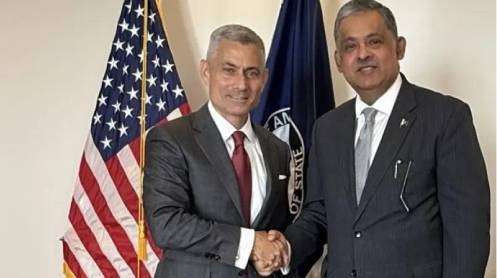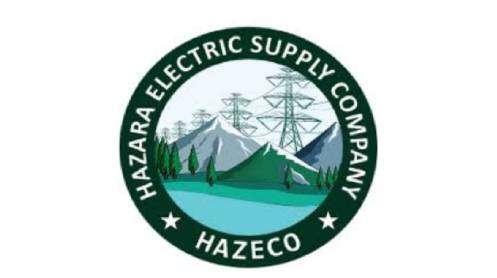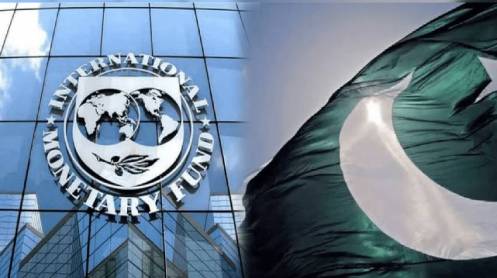WASHINGTON/ISLAMABAD: Pakistan and the United States have reaffirmed their commitment to strengthening bilateral relations, with both sides emphasizing the need to develop an “economically entrenched strategic partnership.”
The development came during a meeting between S. Paul Kapur, the newly appointed US Assistant Secretary of State for South and Central Asian Affairs, and Ambassador Rizwan Saeed Sheikh of Pakistan at the State Department. The meeting marked Kapur’s first high-level engagement with Pakistan’s envoy since assuming office on October 22.
Ambassador Sheikh described the discussion as cordial and forward-looking, noting that both sides explored practical ways to convert recent high-level political resolve into actionable cooperation.
“We discussed ways and means of translating the leadership-level resolve of developing Pakistan–US ties into an economically entrenched strategic partnership through sustained engagement across multiple domains,” Sheikh stated on social media platform X.
Kapur echoed similar sentiments, calling it a “pleasure” to meet the Pakistani envoy. He said the two sides discussed measures to advance the bilateral relationship and “make both countries more prosperous and secure.”
The meeting comes as Washington and Islamabad recalibrate their relationship under US President Donald Trump’s second administration, shifting focus from security-centric engagement to long-term economic cooperation.
In recent months, American officials have pointed to Pakistan’s potential role in regional stability and its capacity to contribute to energy and economic initiatives in South and Central Asia. The Trump administration has also encouraged US companies to explore investment opportunities in Pakistan’s infrastructure, minerals, and technology sectors.
For Islamabad, the renewed tone from Washington offers an opportunity to diversify its partnerships beyond China, while the US aims to anchor its South Asia strategy in trade, investment, and sustainable development rather than aid or counterterrorism cooperation.
Last month, US Secretary of State Marco Rubio said Washington sees an opportunity to expand its strategic relationship with Pakistan, clarifying that the strengthening of ties does not come at the expense of America’s relationship with India.
In September, Prime Minister Shehbaz Sharif met with President Donald Trump at the White House, accompanied by Chief of Army Staff Field Marshal Asim Munir, where both sides discussed regional security and counterterrorism cooperation.
Observers note that while the renewed dialogue signals a positive shift, the partnership’s sustainability will depend on how rhetoric translates into tangible progress. Bridging differences on regional security, trade access, and Pakistan’s engagement with China remains a key challenge.
As one Washington-based analyst noted, “It’s an encouraging start — but what matters now is whether this goodwill can evolve into a structured, long-term partnership grounded in economic and strategic trust.”
Story by Anwar Iqbal







